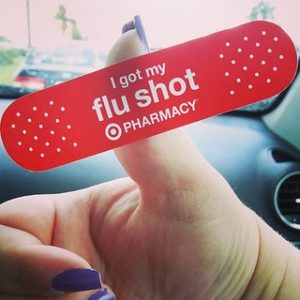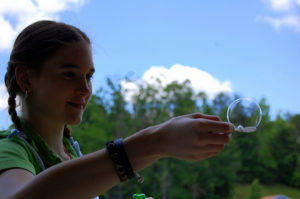In a true emergency, seek medical attention as soon as possible at the hospital emergency room.
If you have a medical problem that you would like to be seen by a doctor the same day for, but you do not feel that it is an emergency, the best place to go would be an urgent care clinic. If you go to the emergency room for something that is not an emergency (like for a sore throat or pink eye), they will see you and treat you, but will not admit you to the hospital. In a case like that, there is an additional $500 deductible by the insurance company. The emergency room is not to be used as your regular doctor.
Here is the link to the medical insurance information and claim forms: APIA Medical
You may go to any doctor or clinic you choose, but if you go to an in-network doctor you are less likely to be asked to pay upfront. If you do have to pay upfront, you can be reimbursed by submitting a claim form to the insurance (providing you have met your deductible, if applicable.)
Here’s how to find the Urgent Care Centers near you who accept our insurance (Aetna)
- To find the one nearest to you, go HERE.
- Type in your zip code.
- Select a Plan. Choose “Passport to Healthcare Primary PPO Network”.
- Under “Find what you need by category”, select “Urgent Care” or “Walk-in Clinic”.
You will receive results like the examples below –
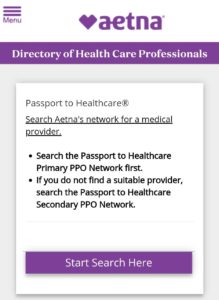
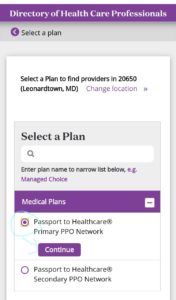
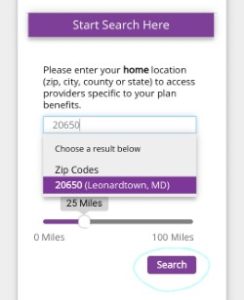
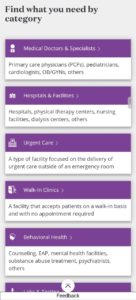
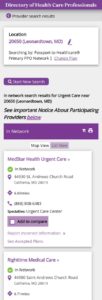
What if you know of another Urgent Care Center near you and it doesn’t appear on the insurance search results? You may call the facility and ask if they accept Aetna. If they say yes, you may go there also. Urgent Care Centers are popping up everywhere and they don’t always get added to the insurance listing immediately.
As of 1/9/2020, Medstar Health, Patient Express, Righttime, Patriot Urgent Care are among the Aetna participating providers.
For fairly simple medical issues the CVS Minute Clinic is a great option.
CVS Minute Clinic – www.minuteclinic.com
Open daily – Hours vary by location. No appointment is necessary.
Locations including: Annapolis, Dunkirk, Edgewater & Leonardtown
For less complicated illnesses including: Allergies, Bladder Infections, Colds, Ear Infections, Pink Eye & Styes, Sinus Infections, Strep Throat, Swimmer’s Ear, Athlete’s Foot, Cold Sores, and Vaccinations.
Visit their website for a complete list of locations, conditions they will treat and the costs.
Bring your Insurance Card – You will need to show your insurance card. You should have received an email from CISI when you arrived. You can search for that email and print your card. Another option is to register at the myCISI portal and print a card from there.


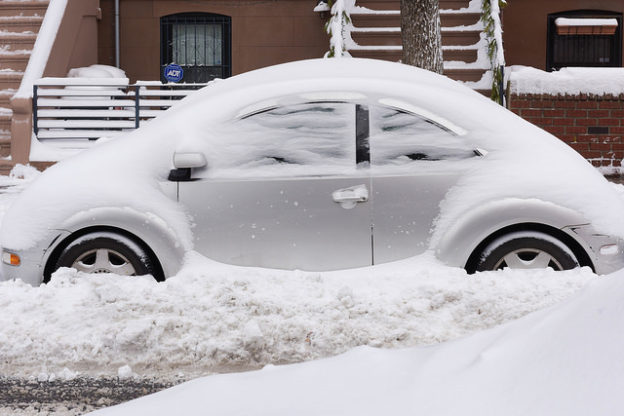 The best advice for driving in bad winter weather is not to drive at all, if you can avoid it. Don’t go out until the snow plows and sanding trucks have had a chance to do their work, and allow yourself extra time to reach your destination.
The best advice for driving in bad winter weather is not to drive at all, if you can avoid it. Don’t go out until the snow plows and sanding trucks have had a chance to do their work, and allow yourself extra time to reach your destination. Trying out winter sports like ice skating, skiing, and snowboarding can be very exciting, especially if this is your first time experiencing winter weather. However, you should also know the risks and be prepared.
Trying out winter sports like ice skating, skiing, and snowboarding can be very exciting, especially if this is your first time experiencing winter weather. However, you should also know the risks and be prepared.






